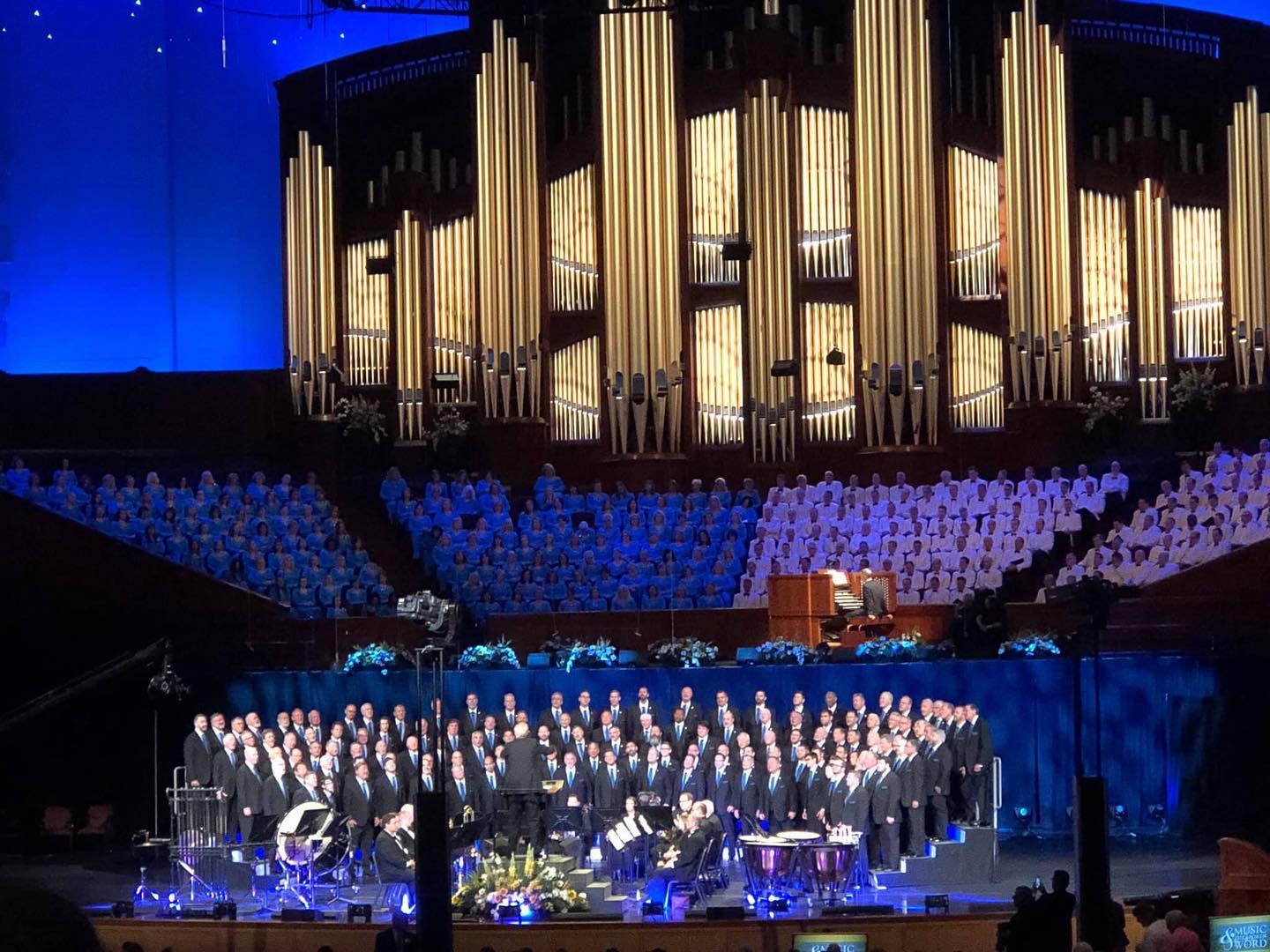 The Tabernacle Choir and the Vocal Majority, July 7, 2019, Salt Lake City
The Tabernacle Choir and the Vocal Majority, July 7, 2019, Salt Lake CityIn Harmony with Others
by Lloyd D. Jewell
There are many things in life that can be done alone. You can play a piano alone—or a violin, a guitar, or any other musical instrument. You can sing a solo, give a speech, or recite a poem alone. But then there are other things—some of the most beautiful—that simply can’t be done alone. For example, you can’t sing barbershop alone. Barbershop singing, by definition, involves joining with others in vocal harmony. It’s about music, but it’s also about community—about working together to create a thing of beauty.
Many historians trace the history of barbershop singing to the 1880s and ’90s when African American musicians started adding multipart harmonies to popular contemporary songs. Over several generations, a unique style emerged, and the unmistakable sound we know as barbershop began to take shape.1
How do you describe that sound? It isn’t easy. Some would say you have to experience it. As one barbershop singer said, “When you’re singing, the sound around you is incredible. You feel like you’re being carried away with it. It’s absolutely inspiring. . . . The chords ring and you feel like you’re being swallowed up by the music itself."2
For many barbershop singers, the music is only part of the experience. Relationships, to them, are inseparable from the sound. It’s friendship, as much as music, that keeps them singing. One expert has written that “barbershoppers feel a strong fellowship—a wave of warmth and friendliness—when they sing together. An important facet of the fun and personal enrichment gained from barbershop singing . . . is its camaraderie."3
Something magical happens anytime people come together with a shared passion. Whenever they have a sincere interest in doing something meaningful and a heartfelt willingness to cooperate rather than compete, they accomplish things that would not be possible if they were working alone.
No, you can’t do barbershop alone, and you can’t do life alone either. We need each other. We need friendship and fellowship. We all do better, we all live happier and more peaceful lives, when we are in harmony with others.
1. See "Roots of Barbershop Harmony," barbershop.org
2. In Robert A. Stebbins, The Barbershop Singer: Inside the Social World of a Musical Hobby (1996), 64.
3. Stebbins, The Barbershop Singer, 66.